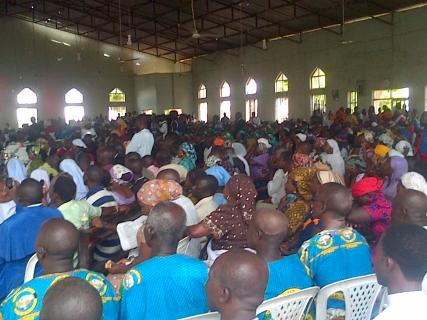In some African societies, griots are keepers of the story/history of the people. They memorize and recite royal lineages and tell the important stories of their people. They are also praise singers who weave tunes in praise of the famous and powerful. The griot, in Cameroon English, has come to be synonymous with the sycophant, one who uncritically buys into the agenda of those in power in order to reap some benefits.
The strong and powerful have often been subjects of songs in many traditional African societies - and so have the disgraceful. In fact, song is often used to praise or blame. However, much of contemporary African pop music seems to fall in the camp of the sycophantic as many songs today seem to recite the names of benefactors or some of the rich and powerful, in hopes that they may become future benefactor. In some cases, calling out one's name in a song indicates that one has socially arrived, that one is now part of the ranks of the rich and powerful. Thus, the names of music producers, musicians themselves, Generals in the army, footballers such as Didier Drogba or Samuel Eto'o, etc., are now the subjects of many songs. One wonders whether contemporary African music is becoming increasingly a place to celebrate the rich and famous. Or is it just a way to sing about African greats? Below is a sample of the kind of song discussed here. It is from arguably the king of this genre in African popular music, Kofi Olomide. Listen for the names.
The strong and powerful have often been subjects of songs in many traditional African societies - and so have the disgraceful. In fact, song is often used to praise or blame. However, much of contemporary African pop music seems to fall in the camp of the sycophantic as many songs today seem to recite the names of benefactors or some of the rich and powerful, in hopes that they may become future benefactor. In some cases, calling out one's name in a song indicates that one has socially arrived, that one is now part of the ranks of the rich and powerful. Thus, the names of music producers, musicians themselves, Generals in the army, footballers such as Didier Drogba or Samuel Eto'o, etc., are now the subjects of many songs. One wonders whether contemporary African music is becoming increasingly a place to celebrate the rich and famous. Or is it just a way to sing about African greats? Below is a sample of the kind of song discussed here. It is from arguably the king of this genre in African popular music, Kofi Olomide. Listen for the names.









